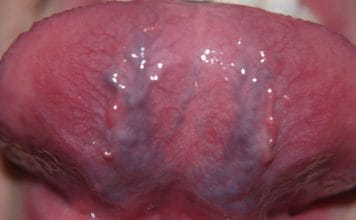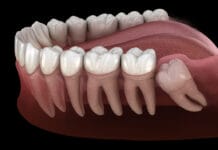What kind of office are you in? There is the kind where it is a utopian bliss, and the team truly is a team of well-intentioned, happy people working cohesively to create the ultimate patient experience. Then there is the office that targets the hygienist because of the income disparity and requires a patient be seen every 40 minutes, complete with backstabbing and gossip. Where are you in that mix from joy to despair? Of course, we know no office is truly utopian or horrific, but how can we, as hygienists, find the balance of what brings us joy and creates an environment where we feel our time and talent is beneficial?
Ideally, it all starts at the interview. Make a list of questions that will give you a true feel for what the work day will provide. Put pen to paper; this is a basic list you can add your thoughts to. Here are examples of questions to ask at an interview:
- Time per appointment: adults (prophy, gingivitis, perio maintenance, and non-surgical periodontal therapy) and children?
- What is expected in each appointment? Medical history update, blood pressure, bitewings, full-mouth radiographs, periodontal charting (do you have help recording?), Restorative charting, oral cancer exam, TMJ screening, sleep apnea questionnaire, prophylaxis, fluoride? Exactly what is included, in detail.
- What is the expectation as far as periodontal protocol? Does this meet your patient care standard?
- When are patients referred out? For instance, are periodontally-involved patients referred out appropriately; pockets are too deep for instrumentation to be effective or not responding to treatment? Is a patient referred out if a suspicious lesion does not heal within two weeks?
- Instrument sharpening: are instruments sent out or are you responsible for this? How often are instruments replaced? How many instrument set-ups are there?
- Hygiene equipment: what equipment is available (ultrasonic, air polisher, etc.) and does it function properly? Are there enough slow-speed handpieces available so they can be sterilized in between patients per the CDC? This is information you want up front!
- Patient care products: are you allowed to choose which prophy paste, prophy angles, fluoride varnish, instruments, handpieces, etc. you use for patient care? Or is it chosen based on cost alone, despite efficacy?
- Sterilization: does everyone help?
- Anesthesia, laser use, nitrous oxide: what is the expectation?
- Radiographs: digital, phosphor plate, or traditional? What is the office’s protocol for how often radiographs are taken?
- Pay rate: hourly, commission-based, or a combination of both? Is this a fair rate of pay depending on your area (pay rates vary state to state and city to city)?
- Mealtime: how long and do you normally get that full amount of time?
- Beginning and ending of the day: How much time are you allowed to prepare at the beginning of the day? At the end of the day, how much time are you allowed to finish charts, help in sterile, etc.?
- Is there a “housekeeping” expectation for the office?
- Benefits: Is any continuing education covered? Uniform allowance or dress code? Is health insurance, paid holidays, sick days, or vacation days offered? Regarding vacation days, are you to take your vacation time at the same time as the doctor? How much time in advance do you need to ask for time off?
- What is the expectation if you are too sick to work or have an emergency? Does the office call a temp agency to find a replacement or are you expected to find your own replacement? Or, are you expected to work sick because production cannot be lost?
- Working interview? Yes, please! This gives you real-life information and the opportunity to interact with the patients and the team. Be sure to discuss payment for the working interview up front; yes, working interviews must be paid!
Again, these are just examples of questions you can ask; think of what you expect from an office who shares your same patient care standard and let that be the basis of your questions. A successful interview is about both sides interviewing each other to learn more about the office dynamic and flow of the day.
Further, think about what are deal breakers for you? Know what you are willing to accept and what areas you can not compromise on; remember this is your career and your license. We all agree that we have worked too hard to put our license in jeopardy, no matter how persuasive the argument may be.
During the working interview pay close attention to how the team interacts. Is there gossip and a feeling of negativity or is it a positive team environment where everyone works together? Offices that allow gossip create a toxic environment of negativity. The mission of an excellent office is to create a team environment of cohesion which allows for the patients to have the best possible experience and treatment; patients should feel better at the end of the appointment than they did walking in.
Are you able to use equipment in the office to your greatest advantage? Having sharp instruments saves time, but more importantly, allows the clinician greater career longevity and the patient has a more comfortable experience in the chair. Ultrasonic scaling reduces operator hand fatigue but also increases patient health removing deposit and biofilm. Are you offered working equipment to give patients a great experience while being kind to your body? Is the operatory set up ergonomically and comfortably?
Appointment time seems to be the largest area of complaint these days. Are you able to complete comprehensive treatment with the time you are given for appointments? Do team members work together and support each other? The best offices are ones that realize all team members are in the same time-crunched position. Each team member has more to do than can possibly be accomplished alone, so offering aid to each position relieves the stress of struggling to stay on time. Instruments must be sterilized, operatories stocked, payments accepted, and appointments made, so it takes respect, understanding, and cross-training. When each team member works to their full potential, up to their defined scope of practice, it contributes to the efficiency of the office. When team members are trained to fact-gather for emergencies and answer phone calls, it saves everyone stress.
During the working interview did you notice if the office is organized and did team members communicate well with each other? Excellent communication of all relevant daily information is essential. Patient arrivals, schedule changes, and possible room changes can play havoc with the day if not all are informed of changes.
How are the office’s infection control protocols? Do they follow CDC recommendations? If a few things are amiss, is there an opportunity to help make infection control protocols stronger? OSHA requires an employer to offer each employee a safe working environment. Is there a written sharps injury protocol? Are you offered proper PPE? Not only should your patients be treated in a safe way, but you must be safe at work as well.
Post interview, you’ve been offered the position, and you take it. Sometimes, even after a working interview, questions arise about if this is truly the office for you, and sometimes it is difficult to find the truth in all the chaos. Do you feel like your voice is heard? Are you enjoying the team, the patients, and the work environment? If not, what can you do to improve the situation or are you part of the problem? Some offices do not have the mentality of “patient first,” but instead, the office’s bottom line comes first. A patient first focus allows us to take pride in our work and know that this is truly how we would want our own loved ones treated. We do not want to “sell” treatment for the sales sake; we want to offer ultimate health opportunities and allow our patients to choose health.
Offices with a team-focused environment, and best day scenarios, are when we each offer the best of ourselves. Great offices allow you to work each day ready to give all of yourself to the patients and the team. The benefits of loving your work environment and the team will make most days a joy. Give yourself permission to be heard, and voice both the positive and the negative, but always go to the appropriate source. Love what you do, who you do it with, and who you do it for.
SEE ALSO: A Look into Working Interviews (And why you should ALWAYS be paid!)
















